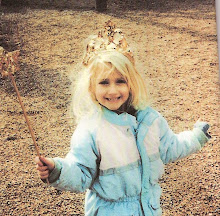I grew up in a University Town with many secrets. On one side of our house lived Svetlana, Stalin’s daughter. My guess she has a few in her closet. On the other side lived an elderly woman who was a recluse. We were used to strange interesting people. On any given Saturday night my parents would have a dinner party with the guest list of the likes of Einstein, Andy Warhol and Peter Guggenheim. But we were more fascinated with the neighbor next door. We used to wonder about her and speculate about who she was. She was always the “big secret”.
All we ever knew about her was that she was a nuclear scientist and was one of the first people to privately own a nuclear microscope. Mind you this was in the 1960’s well before Google. The information explosion mentioned in our text only relates to the last 30 years. (Page 25) Over the years we learned that my neighbor had been working for the government in the 1940’s on a top secret project. That news certainly led us to peer in the windows in the dead of night. Finally we learned, after she had passed away, that she was instrumental in the development of the H-bomb.
Here is one dilemma; she did not know it at the time when she was building the bomb what it was intended for. When she put it all together, just after the bomb dropped, well over 200,000 Japanese civilians had been killed and many more would suffer for years from radiation. From the moment she knew, she shut her door and she spent the rest of her life feeling the guilt of being responsible for such a horrific act.
But there are two heads on both sides of a wooden nickel, so flip the coin. If she knew, would she have continued her work in nuclear science? Would we have won the war? At what point as a government employee should we know what is going on in the little black bunker? If she had known or figured it out before the bomb was dropped, would she have told? Should she have told? If she told, would she have put the lives of everyone in the Pacific Rim in danger? Would the kamikazes come our way? Where they already on the way? Some of these questions, of course, we would never know the answer to. But let’s say I lived next door, and I was writing for the local town paper and I peered through the window and saw something that exposed this person as the one who invented the H-Bomb, do I tell?
But in all situations it probably a better idea to stop, drop and roll, in other words ask myself some serious questions before I jump to conclusions. Yes, my job is to report the news but what is on the other side of that coin. Our textbooks talks about “a list of qualities that define news to include consequences, accuracy, confirmation tenacity, dignity, reciprocity, sufficiency, equity, community and diversity”. (Page 35-36) How important is it to keep this secret? Is the secret in the interest of the public or the opposite? Who is going to get hurt? Who should I talk with about this? The deed is done; do I want to make her life even more miserable? What are the real facts? How can I confirm? Do I have the tenacity to follow it through? Would I be respecting all the veterans of WW2, let’s face it; they are the readers of our paper? Did the bomb bring on the surrender of Japan, was it necessary in order to get this done? Is she a hero?
Flip a coin.
Bespoke salvia
10 years ago

This is a provocative article. It definitely raises some questions about ethical considerations one has to take before writing a story. You may have decided to blow the lid off of the H bomb story, bringing great fame to yourself but endangering the rest of the country. I'm sure there were people close to that project who had the same dilemma that you wrote about here.
ReplyDeleteI totally agree with you on flipping the coin. If something is kept a secret, such as the H bomb example you used in your story, it is probably kept a secret for a good reason. So before anyone jumps to conclusions or tries to expose a secret, they should “flip the coin” and found out the effects that will come with exposing the secret.
ReplyDelete